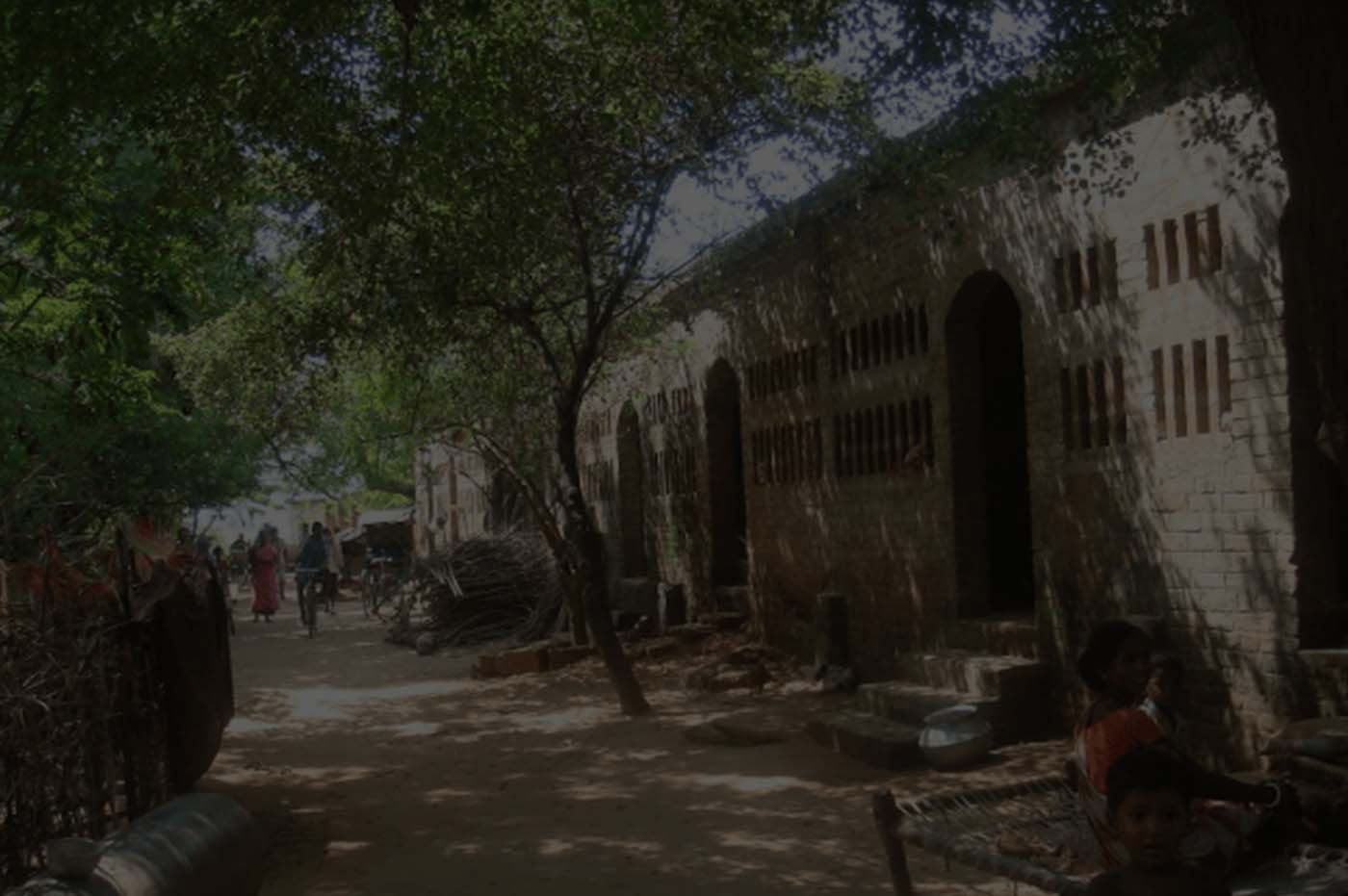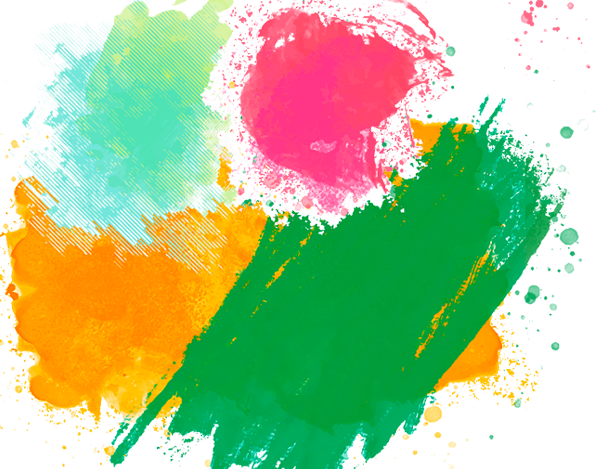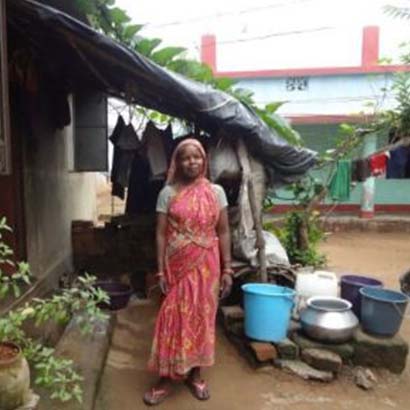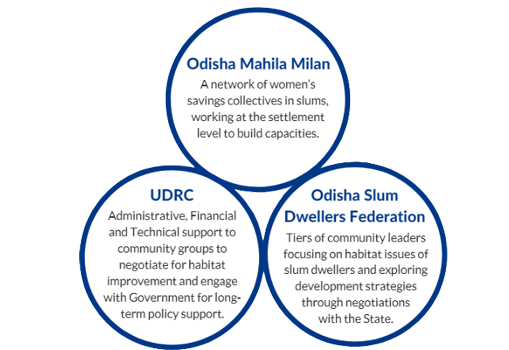
About Us
About Us
2 States I 9 cities I 225 settlements I 10,000+ membersOdisha: Bhubaneswar, Cuttack, Puri, Paradeep, Behrampur, Jajpur
West Bengal: Kolkata, Kalyani, Kona
The Urban and Development Resource Centre emerged as one of the few urban NGOs in Odisha through a catalyzing experience related to evictions in Bhubaneswar in 1998,
In which it offered assistance to slum dwellers in the form of surveys to ensure proper government allocation of land. It became apparent that there were no long-term policies or mechanisms to address the vulnerabilities faced by slum dwellers in Odisha. Communities faced frequent evictions and natural calamities such as cyclones and floods had already devastated their humble dwellings while the city remained apathetic. These challenges are exacerbated by the fact that Odisha is one of India’s poorest states, with 37.6% of its urban population living below the poverty line, most visibly manifested in slums which account for 1.56 million people.
Therefore, it was necessary for slum dwellers to come together, become organised and negotiate for basic necessities. Learning from the ‘federating’ experience elsewhere in the country, the Urban and Development Resource Centre was created. Since there was no precedent for such an organisation in Odisha, UDRC worked with the SPARC alliance in its formative years, adapting its model of building voice through slum dwellers federations and women’s savings co-operatives (known as Mahila Milan). NSDF and Mahila Milan have been active in Odisha since 1999 and in West Bengal since 2001. UDRC was formally established in 2008 by professionals who have worked with the federations and Mahila Milan (Grass roots networks) since they began to feel the need for a new organizational structure to accommodate their agenda and process.


Our Model
work can continue despite bureaucratic and political changes and during lulls in negotiations and unlike reforms initiated from above, these improvements are likely to be sustainable because they arise organically.
Core Processes
Managed by community federations and women’s groups, these centres act as a place of congregation and mobilization around the activities.
Mobilizing Community
- 225 settlements in 2 States, 8 Cities with 11000+ members organised into savings groups.
- 200+ women community leaders built.
Managed by community federations and women’s groups, these centres act as a place of congregation and mobilization around the activities. The Alliance is active in six cities of Odisha – Bhubaneswar, Puri, Cuttack, Paradip, Berhampur and Jajpur across 184 settlements and in 3 cities of West Bengal - Kolkata, Kona and Kalyani across 20 settlements.
- 600 groups in 250 slum settlements save and have accessed a total credit worth US$ 83,242.
- 50 lakh rupee community funds used for improving basic services
A network of women collectives (Mahila Milan) is being created across slums around the activity of daily savings, thus mobilizing communities around financial and organisational systems and creating relationships at community, inter-slum and inter-city levels. The savings are used to make small loans for purposes of house repair, health or education.
- 710 slum profiles and surveys.
- mapping of about 120,000 households undertaken by the Federation
UDRC collaborates with community based organizations to carry out data collection, helping slum dwellers create their own identities in cities that have long neglected to map them and to better articulate their needs to access resources. Each of the city-level federations have completed settlement profiles which they update every two years.
- 55+ Model Houses built to demonstrate local solutions.
UDRC supports communities to demonstrate the sustainability of their ideas as pilot interventions which when successfully implemented can become scalable models for cities. Precedent setting activities include construction of model houses, community toilet blocks, electrification of settlements & provision of water facilities. These activities indicate not only to poor communities but also government officials and other stakeholders the potential of community-led, solutions.
- 1000 Inter-City peer exchanges
- 20+ State to State learning exchanges.
Community exchanges and meetings are based on the premise that the poor learn best from each other. Exchanges take place within & across cities, regions & countries, allowing members to visit each other’s settlements, learn about their challenges & achievements and build a pool of knowledge & skills around habitat improvement and pro-poor governance. This is also a way of breaking isolation and powerlessness, as poor communities associate with a larger collective and interdependent process.
- 7 City Municipalities and Authorities
- 15+ Academic & Professional Collaborators.
UDRC regularly negotiates with local and state authorities to enable access to amenities and challenge the top-down narrative of projects. The larger goal of UDRC is to advocate for pro-poor policy changes on the basis of grassroots experience. We aim to create space for NGOs to participate in government programs but also to create collaborations with professionals and academic institutions to co-create habitat solutions for the urban poor.


